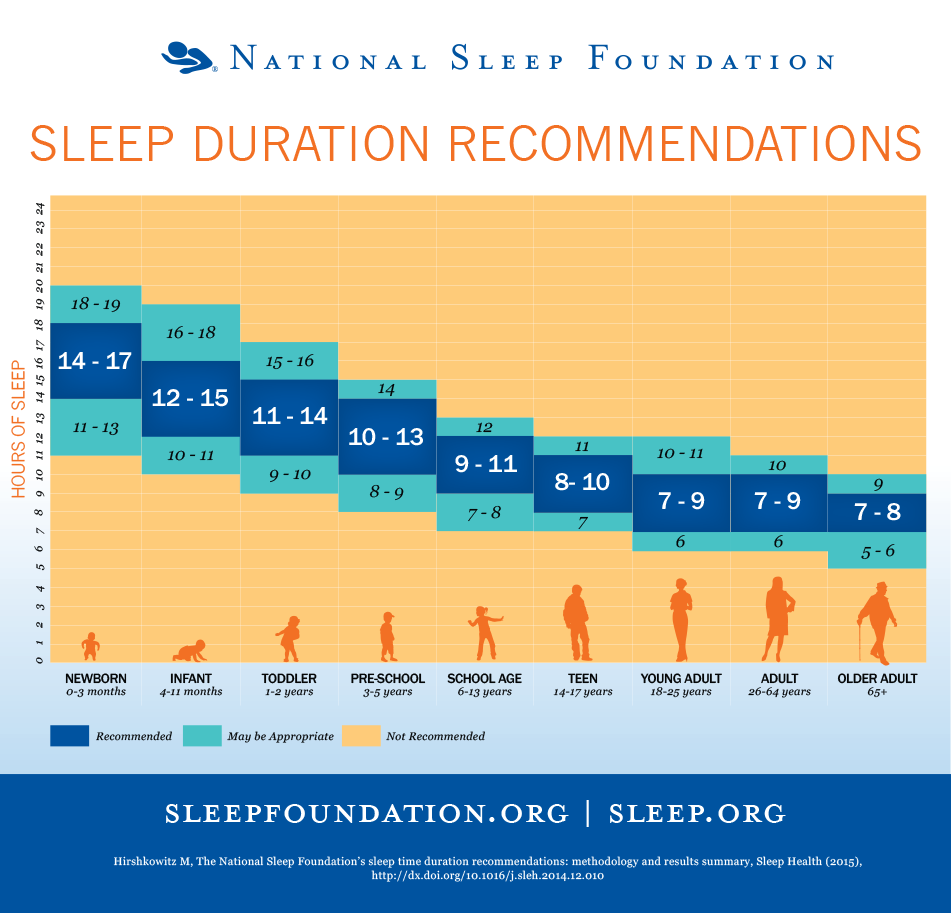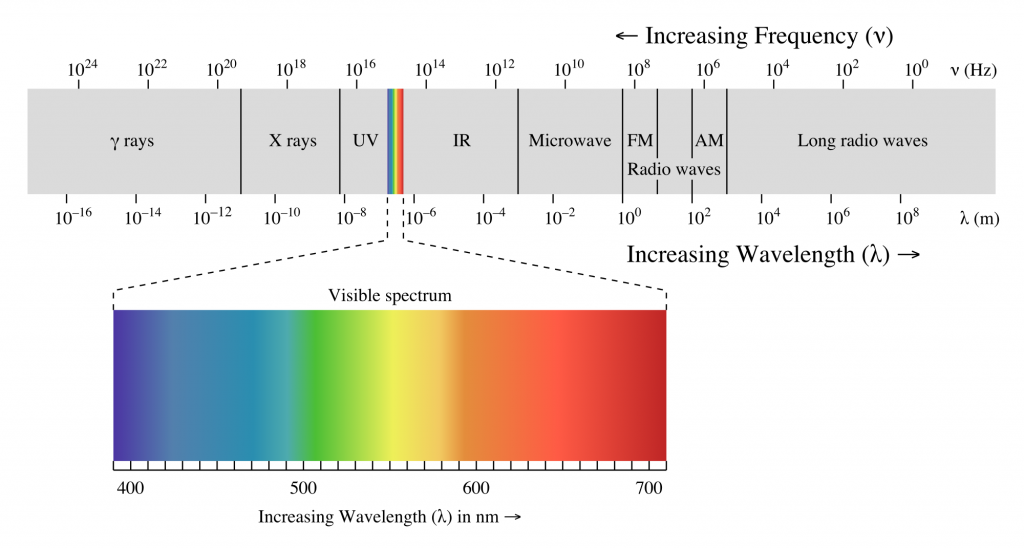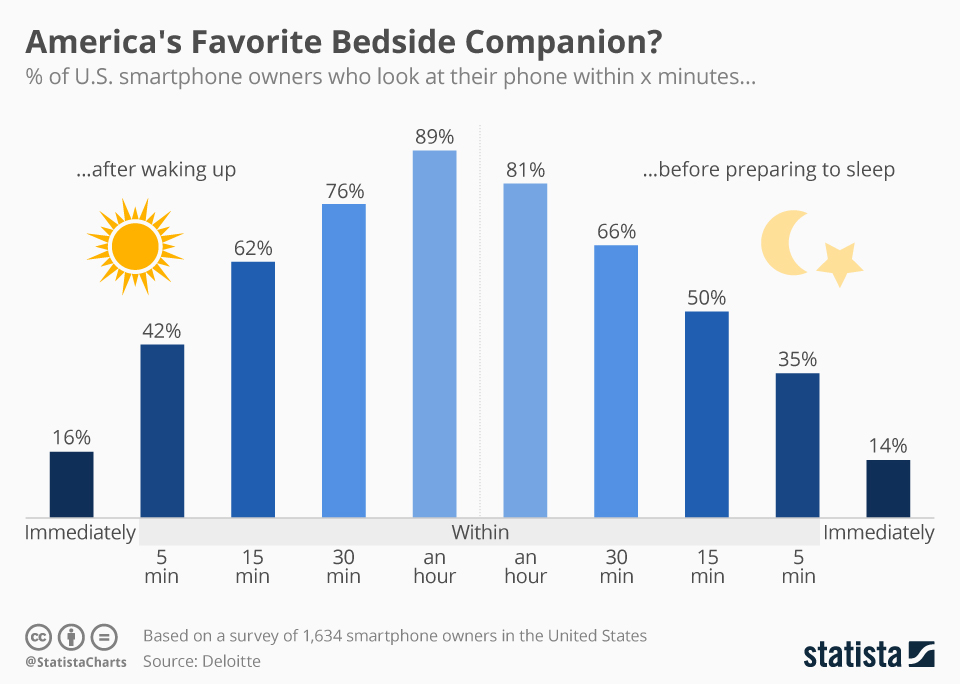Have you ever wondered how our body knows when it is time to go to sleep?
In this day and age, sleep deprivation has become more common with artificial lighting and the more frequent use of electronics. These unnatural sources of light mess-up our natural circadian rhythm, as our body doesn’t know when it is actually night time. This causes our body to not be ready for sleep when we are, resulting in less sleep than the required amount for our needs.

Figure 1: The recommended amount of sleep required for people with a dependence on age. Source: Sleep Foundation
Our eyes are the messengers that let the brain know when to wind down and get ready for bed. As it gets dark, less light is sensed by the eye’s retina. This sends a message to the brain to start producing sleep hormones, like melatonin, and to drop our body temperature to prepare for sleep.
Blue light has increases in our day to day lives with the increased use of LEDs, which are the main source of light in our electronics and smartphones. This light is higher energy than the rest of the visible spectrum, which studies have shown that exposure to at night represses delta brain waves, associated with deep sleep and amplify alpha brain waves, which create alertness.

Figure 2: The visible light spectrum with blue light being at the left end of the spectrum at the highest energy of visible light. Source: Wikimedia Commons
This high energy light is essential in the day to make us alert and let us function to keep up with our busy schedules, but at night studies have shown that this blue light suppresses the production of melatonin in our bodies up to 85% more than any other colour of light!

Figure 3: Average use of smartphones of Americans before bed and after they wake up. Source: Statistica
With smartphones and electronics become more common in our nightly routine, lack of sleep is just the beginning of the health effects that over exposer of blue light could cause. Preliminary studies have liked diabetes, high blood pressure and more to the overuse of high energy at night. This makes you stop and think, with little changes in our nightly routine, blue light could be cut out before we go to sleep. A small change for the drastic effects of our quality of sleep and overall health.
~ Amanda Fogh
